To read the first article of this series, click here.
To read the second article of this series, click here.
The defeat in the 2020 Karabakh War unsurprisingly dragged Armenia into political uncertainty. Quite logically snap elections were resorted to as a way out. For this reason, that was a welcomed development. On the other hand, snap elections also carried certain risks. For example, there could have been social disturbances because of heightened tensions during the elections process, which might have transformed into a civil strife. If the electoral race had finished with a winner by a small margin, the legitimacy of the election results could have been disputed, which could have found echo in society and which could, in turn, have led to chaos. The same possibility could have necessitated the formation of a coalition government, the negotiations of which could also have given a similar result. Even if a coalition government was formed, its stability and well-functioning could not have been guaranteed.
Fortunately, none of these scenarios occurred for Armenia. There were no major social disturbances during the elections process and eventually, Nikol Pashinyan’s Civil Contract Party became the winner of the elections with 54% of the votes and by a margin of 33 points. By this result, the Civil Contract Party acquired 71 of the 107 seats in the parliament, giving it the opportunity to form a single-party government and ability to pass legislations without needing the support of the other two parties, which gained the right to be represented in the parliament.
It should also be noted that the outcomes of the 20 June 2021 snap parliamentary elections are not only important for Armenia per se; they also have importance for regional developments in the South Caucasus. Simply put, the finalization of the elections with radical political forces coming to power could have put the fragile post-war stability in the region into greater jeopardy. When considered from this point of view and taking into account the discourses of the political forces and the post-war practice of the first Pashinyan government, it can be argued that Pashinyan’s electoral victory is good news for the region. We can even argue that the result of the recent snap parliamentary elections in Armenia may be a glimmer of hope for relative normalization in the South Caucasus, a region that has been strained by tensions since the dissolution of the USSR.
This is so because of three reasons. Firstly, Pashinyan’s landslide victory against his contenders effectively ends the polemics about the legitimacy of the government in Armenia; with the elections, the Armenian electorate clearly expressed whom they prefer to run the country, no matter what their reasons were. The only question in this regard, however, could be the low voter turnout, which was a little less than 50%. Besides that, and probably more importantly, the huge difference between the votes that Pashinyan’s Civil Contract Party and the others, even just some eight months after the defeat in the 2020 Karabakh War, for which Pashinyan was viciously - and to a significant extend justly - criticized and blamed for, is the political obituary of his opponents. As such, there is a precious opportunity for the ending of political ambiguity in Armenia and establishing stability to look forward, though it is not certain that this opportunity will be seized upon. In any case, it should be highlighted that stability in Armenia will significantly contribute to the post-war relative stability in the South Caucasus.
Secondly, the results of the elections, most probably, mean the defeat of radicalism and revanchism in Armenia, at least in the short-run. This is a favorable result first and foremost for Armenia. This is so because a new war would be a military disaster for Armenia, which has already lost most of its military strength in the 44-day-long war last autumn. Besides that, another war would mean the end of the delicate calm in the region. Moreover, if a new war breaks out, it may drag in not only other countries such as Russia and Turkey, but also CSTO and NATO. This means an interstate war may turn into a regional war. Therefore, the loss of radicalism and revanchism in Armenia is a positive development for the region. Still, everyone should be on alert about the possibility of provocations coming from the Armenian side, especially of those that might be orchestrated by the rivals of Pashinyan seeking to corner him. There may be people contemplating on this kind of scenarios not only in the politics but also within the state apparatus.
The third reason is about Pashinyan’s acceptance of the implementation of the provisions of 9 November 2020 ceasefire agreement and the statement of the trilateral summit of Armenian, Azerbaijani and Russian leaders on 11 January 2021 on the unblocking of economic and transport connections in the region. Whereas Armenian opposition radically criticized this prospect after the ending of the armed hostilities between Armenia and Azerbaijan on 9 November 2020 with the aforementioned ceasefire, Pashinyan -though sometimes with distortions- defended it. During the elections process, he advocated the idea that unblocking of the region would contribute not only to regional stability, but also to Armenian economy and security, and hence should be Armenia’s foreign policy priority.
Importantly, for Azerbaijan too, the unblocking of the economic and transport connections is a priority for similar reasons. Russia and Turkey, two heavyweights of the region, also seem resolute in pushing for the realization of this prospect. In fact, this mostly unprecedented convergence of views in the South Caucasus is the greatest opportunity for a durable peace and the prospective welfare in the region. Therefore, we should hope that Pashinyan will not backtrack from his views and also manage to successfully communicate the benefits of the unblocking of the region to his compatriots, which may be not so easy due to the dominance of some ungrounded national myths and narratives in Armenia. Lastly, it should be underlined that international support to the unblocking of the region will certainly be a very important positive influencer for the realization of this prospect, which would dramatically change region’s destiny.
* Photo: Anadolu Ajansı
© 2009-2025 Center for Eurasian Studies (AVİM) All Rights Reserved
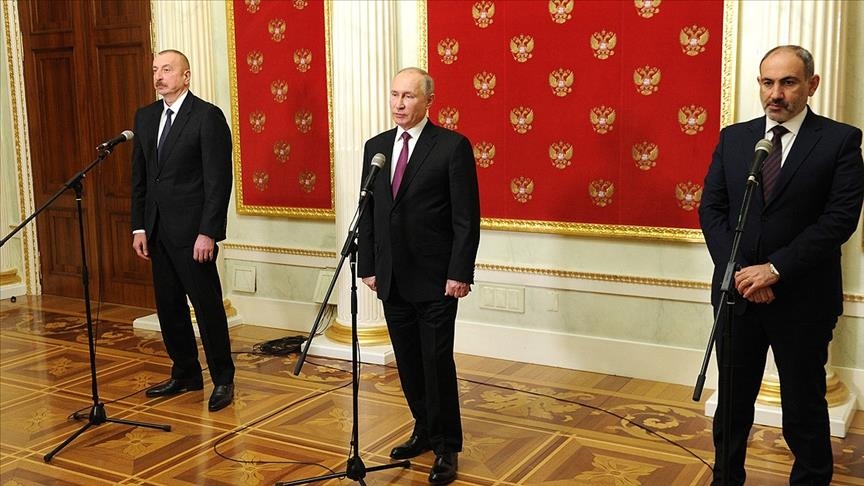
 FORGETFULNESS OF POPE FRANCIS AND PRESIDENT GAUCK: ACCIDENTAL OR WILLFUL?
FORGETFULNESS OF POPE FRANCIS AND PRESIDENT GAUCK: ACCIDENTAL OR WILLFUL?
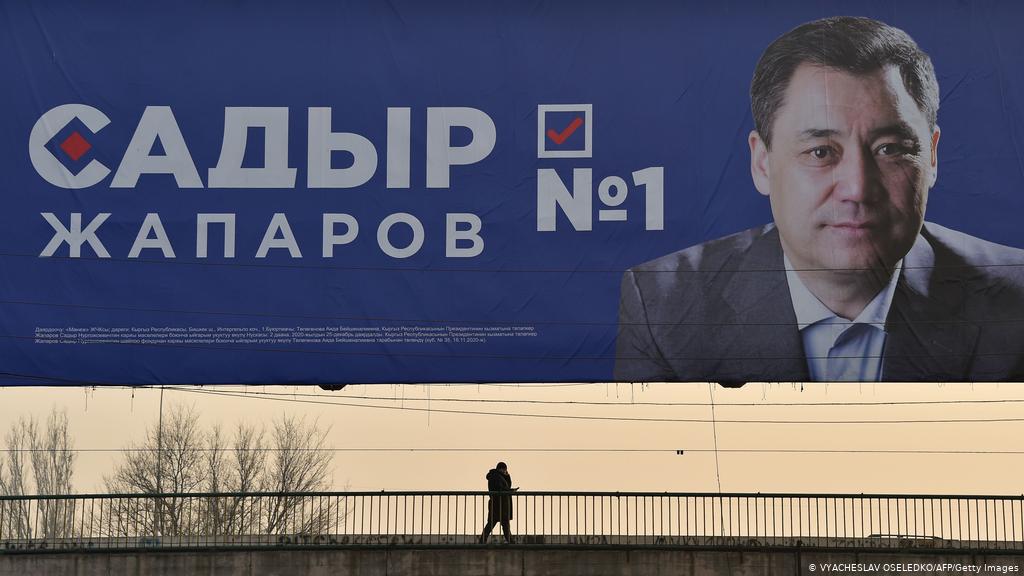 KYRGYZSTAN AFTER 10 JANUARY 2021 PRESIDENTIAL ELECTIONS AND CONSTITUTIONAL REFERENDUM
KYRGYZSTAN AFTER 10 JANUARY 2021 PRESIDENTIAL ELECTIONS AND CONSTITUTIONAL REFERENDUM
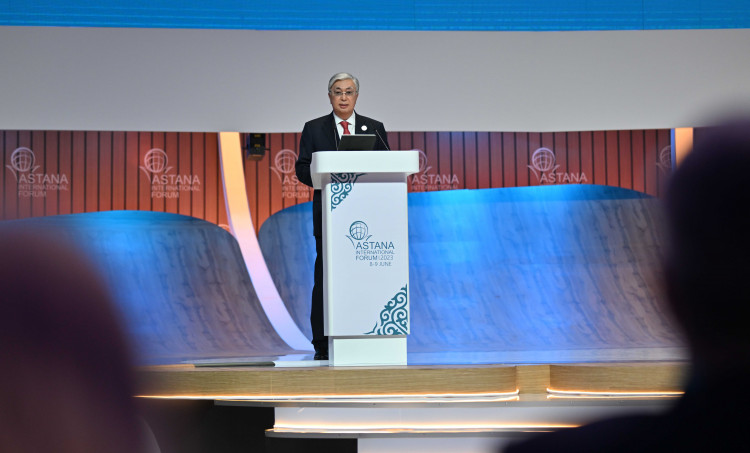 DISPLAYING THE ‘NEW KAZAKHSTAN’ IN THE GLOBAL POLITICAL SYSTEM: THE ASTANA INTERNATIONAL FORUM
DISPLAYING THE ‘NEW KAZAKHSTAN’ IN THE GLOBAL POLITICAL SYSTEM: THE ASTANA INTERNATIONAL FORUM
 ARMEN SARKISSIAN’S PRESIDENCY AND THE QUESTIONS ON ETHICS AND POLITICAL CULTURE IN ARMENIA (26.01.2022)
ARMEN SARKISSIAN’S PRESIDENCY AND THE QUESTIONS ON ETHICS AND POLITICAL CULTURE IN ARMENIA (26.01.2022)
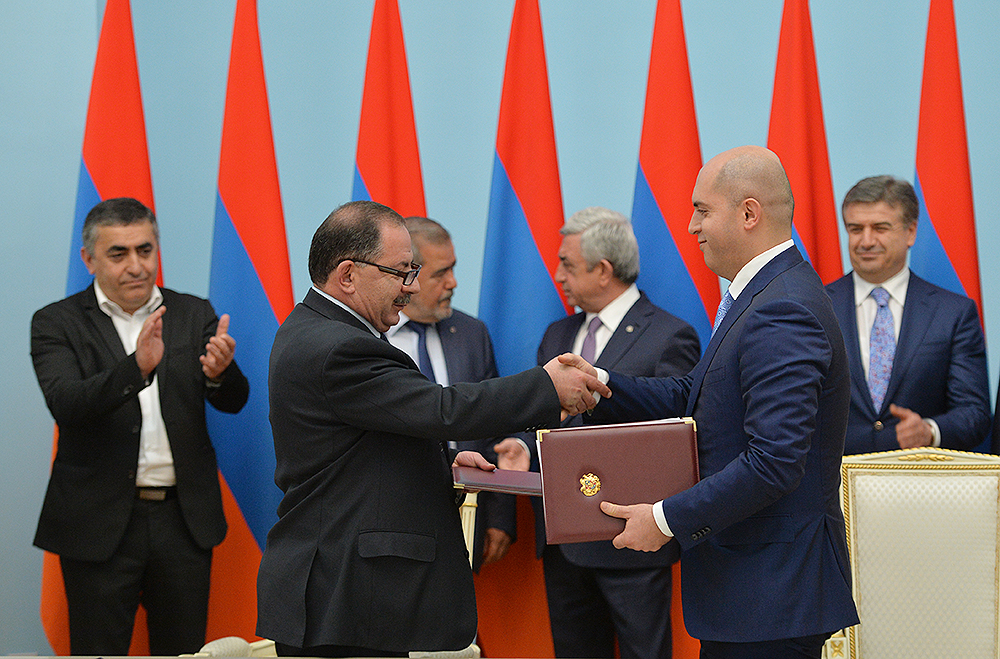 COALITION MEMORANDUM BETWEEN THE RULING RPA AND THE ARF IN ARMENIA: NOTHING NEW AFTER THE 2 APRIL 2017 ELECTIONS
COALITION MEMORANDUM BETWEEN THE RULING RPA AND THE ARF IN ARMENIA: NOTHING NEW AFTER THE 2 APRIL 2017 ELECTIONS
 THE NOTION OF “WESTERN BALKANS”, THE BALKANS, AND TURKEY
THE NOTION OF “WESTERN BALKANS”, THE BALKANS, AND TURKEY
 AVİM HELD A CONFERENCE ON “MONGOLIA’S POTENTIAL IN THE REGION, THE CURRENT SITUATION IN MONGOLIA PRIOR TO THE 11TH ASIA-EUROPE MEETING (ASEM) AND TURKISH-MONGOLIAN RELATIONS”
AVİM HELD A CONFERENCE ON “MONGOLIA’S POTENTIAL IN THE REGION, THE CURRENT SITUATION IN MONGOLIA PRIOR TO THE 11TH ASIA-EUROPE MEETING (ASEM) AND TURKISH-MONGOLIAN RELATIONS”
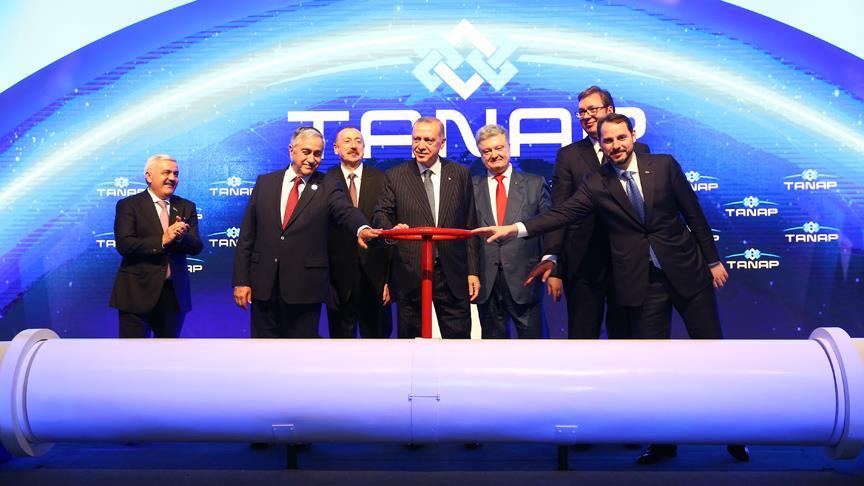 THE OPENING OF TANAP NATURAL GAS PIPELINE
THE OPENING OF TANAP NATURAL GAS PIPELINE
 BAKALIAN CASE APPEAL HEARING HELD IN CALIFORNIA
BAKALIAN CASE APPEAL HEARING HELD IN CALIFORNIA




























